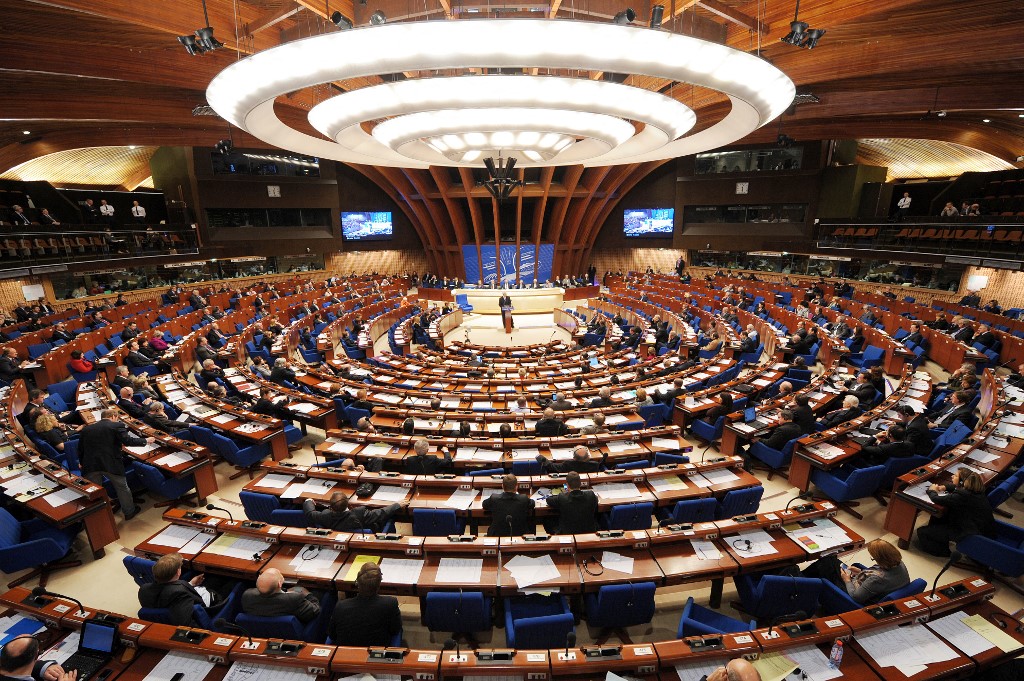The Parliamentary Assembly of the Council of Europe (PACE) adopted a resolution on Thursday urging Turkey to comply with the judgments of the European Court of Human Rights (ECtHR) and calling for the immediate release of philanthropist and businessman Osman Kavala.
The resolution was adopted during the fourth part-session of 2023 by the Committee on Legal Affairs and Human Rights, with PACE member Petra Bayr from Austria serving as the rapporteur.
The resolution calls for engagement with Turkish authorities at the “highest levels” to secure the immediate release of jailed Turkish philanthropist Kavala. In addition it presses for urgent action to bolster the rule of law and human rights protection in Turkey.
Most notably, PACE suggests applying “Magnitsky legislation” or other legal means to impose targeted sanctions on Turkish officials. These officials include prosecutors and judges who have played a role in the “unlawful and arbitrary deprivation of liberty” of Kavala.
Initially, the draft resolution by PACE called for targeted sanctions on a broad range of Turkish officials involved in the unlawful imprisonment of Kavala and other political prisoners. This encompassed police officers, prison personnel, judges and prosecutors. However, an oral amendment, approved by a simple majority, narrowed down the sanctions to only target judges and prosecutors involved in the continued imprisonment of Kavala.
The resolution also recalled PACE’s ability to challenge the credentials of the Turkish delegation at its first part-session of 2024 if Kavala has not been released from prison by Jan. 1 2024.
The resolution follows a meeting between PACE rapporteurs and Kavala at İstanbul’s Silivri Prison, where the rapporteurs reiterated the call for the Turkish authorities to adhere to the ECtHR judgments and to continue high-level dialogue.
Turkey’s Supreme Court of Appeals last month upheld Kavala’s conviction and life imprisonment on the charge of attempting to overthrow the government of then-prime minister and current president Recep Tayyip Erdoğan during large-scale protests in 2013.
Kavala, 66, faced shifting charges that have ranged from espionage and financing protests in 2013 to taking part in a failed coup against Erdoğan in 2016.
He was arrested in October 2017 and sentenced to life in 2022 for allegedly trying to topple Erdoğan’s government.
Turkey’s refusal to abide by ECtHR rulings to immediately release Kavala have damaged Ankara’s relations with Western allies.
The Council of Europe launched an infringement proceeding against Turkey over its treatment of Kavala that could potentially see Ankara expelled from the continent’s leading human rights organization.
Critics say his case highlights the deterioration of Turkey’s rights record in the second decade of Erdoğan’s rule.
The PACE resolution comes after a landmark ruling by the ECtHR last month that could affect thousands of political prisoners in Turkey. The court ruled that Turkey violated the rights of a former teacher convicted of terrorism due to his alleged use of a mobile application, his bank account and labor union membership, concluding that his conviction violated several legal principles enshrined in the European Convention on Human Rights: the right to a fair trial, the principle of no crime without law and the right to association.
This ruling is expected by legal experts and human rights defenders to have an impact on the conviction or trial of thousands of people who face terrorism charges, which are often used to crack down on government opponents. Despite signals from the Turkish government criticizing the ruling, experts say Turkish authorities have to abide by the ruling or face consequences.
Meanwhile, the Turkish Foreign Ministry in a written statement on Friday accused PACE of attempting to abuse judicial processes for politics and closing channels of dialogue by adopting the resolution that calls for Kavala’s immediate release.
Describing the adoption of the resolution as a “historic mistake,” the ministry said it is against the democratic values that form the raison d’être of PACE.
“This recklessness of PACE aimed at gaining visibility will be remembered with shame in the future,” said the ministry.



